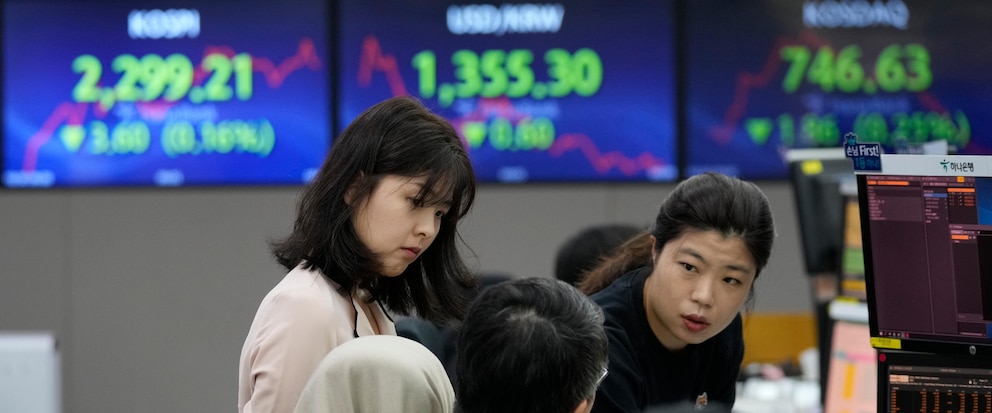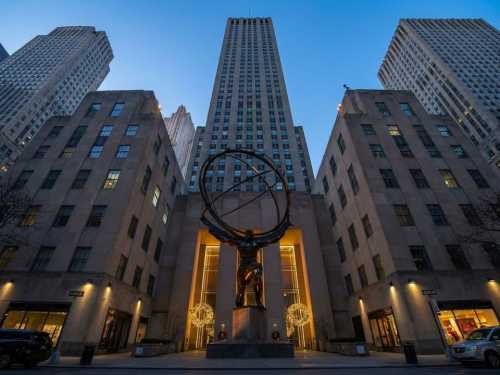
HONG KONG — Asian shares were mostly lower on Monday ahead of a Federal Reserve decision this week on interest rates.
U.S. futures gained while oil prices fell more than $1 a barrel. as concerns over an escalation of the Israel-Hamas war added to uncertainty over supplies.
The Israeli military’s ground forces conducted incursions into Gaza over the weekend and Prime Minister Netanyahu warned of a “long and difficult” war.
A mixed set of economic reports Friday didn’t appear to change Wall Street’s expectations that the Federal Reserve will keep its benchmark rate of above 5.25% unchanged at a meeting Wednesday.
A report showed that the Fed's preferred measure of inflation remained high last month, but within economists’ expectations. Spending by U.S. consumers was stronger than expected, even though growth in their incomes fell short of forecasts.
U.S. consumer expectations for inflation in the coming year are rising, up to 4.2% from 3.2% last month. That’s particularly concerning for the Fed, which fears such expectations could lead to a vicious cycle that worsens high inflation.
In Asian markets Monday, Tokyo’s Nikkei 225 index lost 1.3% to 30,591.03. There is speculation, given recent signs of sustained inflation, that the Bank of Japan may make adjustments to its monetary policy in a meeting that ends on Tuesday.
Over the weekend, more than 30 companies listed in China revealed intentions to conduct share buybacks and purchases after China announced a slew of measures aimed at stabilizing falling stock prices. The Hang Seng in Hong Kong fell 0.3% to 17,349.36 and the Shanghai Composite index rose 0.2% at 3,022.90.
Nominal retail sales in Australia rose 0.9% in September from August, data from the Australian Bureau of Statistics showed on Monday. This is the fastest pace in eight months, suggesting some resilience in consumer spending. Australia’s S&P/ASX 200 slipped 0.6% to 6,787.90.
South Korea’s Kospi added 0.4% to 2,311.55. Taiwan’s Taiex edged up 0.1% and the SET in Bangkok also was up 0.1%.
Stocks stumbled Friday on Wall Street. The S&P 500 fell 0.5%, 10% below the peak it reached in July.
That put benchmark index into what’s called a “correction.” Stocks have fallen the past three months as investors face the reality of higher interest rates, with Federal Reserve officials talking about keeping rates “higher for longer.”
The Dow Jones Industrial Average fell 1.1% and the Russell 2000 index of smaller company stocks slipped 1.2%, closing at its lowest level in about four years.
The Nasdaq was the bright spot in the market, gaining ground on the strength of several big technology and communications companies that reported solid earnings. The index rose 0.4%.
Amazon rose 6.8% following its profit report. Both its profit and revenue for the summer were better than expected. As one of the most massive companies on Wall Street, Amazon’s stock movements carry huge weight on the S&P 500 and other indexes.
It’s one of the “Magnificent Seven” Big Tech stocks responsible for much of the market’s climb early this year. But those huge gains also meant big expectations: Alphabet, Meta and Tesla all fell sharply following their latest reports.
Intel, which is outside the Magnificent Seven, was also helping to support the market. It rose 9.3% after reporting much stronger profit for the summer than analysts expected.
Ford stumbled 12.2% after reporting disappointing earnings and revenue a day after it reached a tentative contract agreement with the United Auto Workers union.
The yield on the 10-year Treasury has been hovering at levels not seen since 2007. Early Monday it was at 4.87%. Its rise from less than 3.50% in the spring to more than 5% earlier last week has sent prices tumbling for older bonds already trading in the market.
The 10-year yield has been catching up the Fed’s main overnight interest rate as the economy remains remarkably solid and as worries rise about how much debt the U.S. government is taking on to pay for its spending.
A barrel of benchmark U.S. oil fell $1.32 to $84.22 a barrel in electronic trading on the New York Mercantile Exchange. It slipped 99 cents to settle at $84.54 on Friday. Brent crude, the international standard, slipped $1.12 to $88.08 per barrel.
In currency trading, the U.S. dollar fell to 149.56 Japanese yen from 149.59 yen. The euro cost $1.0563, falling from $1.0567 late Friday.
Sourse: abcnews.go.com






